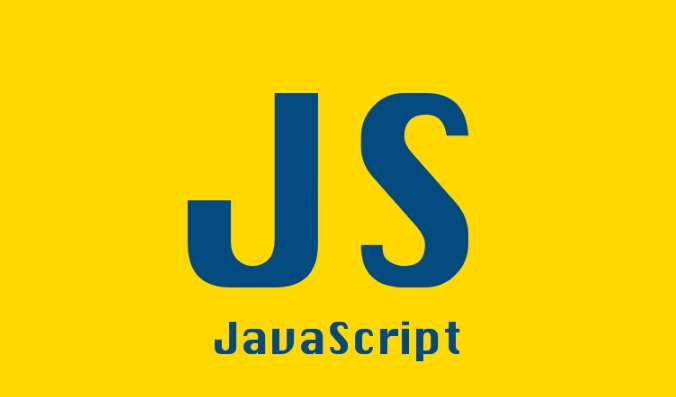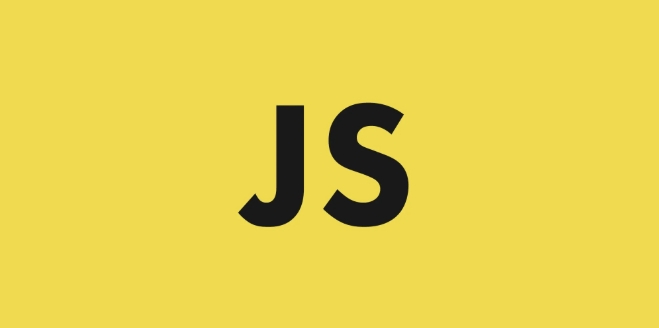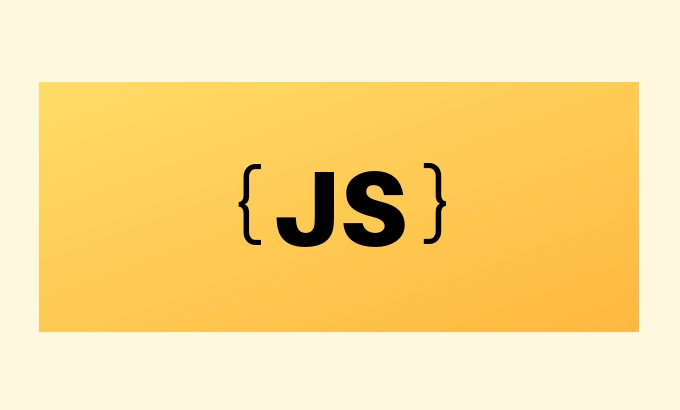Advanced CSP skills include: 1. Use 'strict-dynamic' to implement secure loading of dynamic scripts, and cooperate with random nonce to ensure the legitimacy of dynamically generated scripts; 2. Use connect-src and frame-src to control the network requests and iframe embedding sources of third-party SDKs; 3. Remove 'unsafe-eval' to disable the execution of eval-type functions; 4. Use report-to to report violations to debug and monitor CSP execution. These methods enhance security while ensuring the functionality of modern SPA applications.

If you are developing a modern JavaScript application, especially using SPAs (single-page applications) with frameworks like React, Vue, or Angular, you may find that the standard CSP (Content Security Policy) instructions are far from enough. To balance security and functionality, you need to control how scripts are loaded and executed in a more granular way.

The following are some advanced CSP instruction setting tips that can help you better protect your application while avoiding errors caused by too strict policies on the page.
strict-dynamic : Dynamic scripts can also be loaded safely
Many front-end frameworks will generate inline scripts at runtime or insert code through module loaders. At this time, the traditional whitelisting method (such as 'sha256-...' ) is not very suitable.

The solution is to use 'strict-dynamic' :
Content-Security-Policy: script-src 'nonce-abc123' 'strict-dynamic';
This setting means: as long as the script is loaded by a parent script with a legal nonce, it is considered a trusted source and no additional hash or domain name is required. This is great for scripts that are lazy to load modules or dynamically injected through packaging tools such as Webpack.

What should be noted is:
- It must be used with random nonce generated by the server.
- Do not hardcode the nonce value, new ones should be generated every time you request.
- Without
'strict-dynamic', the dynamically loaded script will be intercepted because there is no hash or is not in the whitelist.
Control third-party script loading: connect-src and frame-src
If your application introduces third-party SDKs (such as burying points, payments, advertising, etc.), these services usually initiate network requests or embed iframes through scripts.
At this time, you can use the following instructions to limit their behavior:
-
connect-src: Restrict which sources can be used for XMLHttpRequest, fetch requests. -
frame-src: Restrict which sources can be loaded as<iframe>content.
For example, suppose you use Google Analytics and Stripe payment components:
Content-Security-Policy: connect-src 'self' https://analytics.google.com; frame-src 'self' https://checkout.stripe.com;
The benefits of doing this are:
- Prevent malicious scripts from secretly sending requests to other addresses.
- Even if a third-party service is attacked, the scope of impact will be limited.
But be aware that some SDKs may rely on multiple subdomains or CDN addresses, so be sure to test them in advance, otherwise it will easily lead to functional abnormalities.
Restrict execution of eval type: Disable dangerous functions
Some functions in JavaScript (such as eval() and new Function() ) execute code from strings, which is very dangerous for CSP.
By default, CSP allows these behaviors unless you explicitly prohibit:
Content-Security-Policy: script-src 'self' 'unsafe-eval';
The above writing method actually allows the use of eval. For safer purposes, 'unsafe-eval' should be removed:
Content-Security-Policy: script-src 'self';
However, be aware that some libraries (such as earlier versions of Vue or Angular) may use new Function() internally, so it is best to do compatibility testing before upgrading.
Report violations: Record potential problems with report-to
Even if you have already set up your CSP, you may encounter some unexpected script loading failures. At this time, you can use report-to command to let the browser report the violation:
Content-Security-Policy: default-src 'self'; report-to /csp-violation-report-endpoint;
Then you can record these reports on the backend to see if there are any errors or missed cases. This method is particularly suitable for early debugging on the Internet and can also be used as a long-term monitoring mechanism.
Report content usually includes:
- Intercepted resource URL
- Type of instruction that violates the rules
- Current page address
It is recommended to run in read-only mode for a period of time ( Content-Security-Policy-Report-Only ) first, and then enable forced interception after confirming that it will not affect the user's use.
Basically that's it. Setting up advanced CSP is not complicated, but it is easy to ignore details, such as third-party script path changes, framework dependence on eval, and how nonce is generated. Rational configuration can not only improve safety, but also help you discover potential safety hazards in a timely manner.
The above is the detailed content of Advanced CSP Directives for JavaScript Applications. For more information, please follow other related articles on the PHP Chinese website!

Hot AI Tools

Undress AI Tool
Undress images for free

Undresser.AI Undress
AI-powered app for creating realistic nude photos

AI Clothes Remover
Online AI tool for removing clothes from photos.

Clothoff.io
AI clothes remover

Video Face Swap
Swap faces in any video effortlessly with our completely free AI face swap tool!

Hot Article

Hot Tools

Notepad++7.3.1
Easy-to-use and free code editor

SublimeText3 Chinese version
Chinese version, very easy to use

Zend Studio 13.0.1
Powerful PHP integrated development environment

Dreamweaver CS6
Visual web development tools

SublimeText3 Mac version
God-level code editing software (SublimeText3)
 What is Content Security Policy (CSP) header and why is it important?
Apr 09, 2025 am 12:10 AM
What is Content Security Policy (CSP) header and why is it important?
Apr 09, 2025 am 12:10 AM
CSP is important because it can prevent XSS attacks and limit resource loading, improving website security. 1.CSP is part of HTTP response headers, limiting malicious behavior through strict policies. 2. The basic usage is to only allow loading resources from the same origin. 3. Advanced usage can set more fine-grained strategies, such as allowing specific domain names to load scripts and styles. 4. Use Content-Security-Policy-Report-Only header to debug and optimize CSP policies.
 PHP8.1 released: supports CSP (Content Security Policy)
Jul 09, 2023 pm 06:52 PM
PHP8.1 released: supports CSP (Content Security Policy)
Jul 09, 2023 pm 06:52 PM
PHP8.1 released: supports CSP (Content Security Policy). With the development of the Internet, network security issues have increasingly become the focus of attention. In order to protect users' privacy and security, more websites are beginning to adopt Content Security Policy (CSP) to limit the content that can be executed and the resources that can be loaded in web pages. In the latest release of PHP 8.1, native support for CSP has been introduced, providing developers with better tools to enhance the security of web pages. CSP allows web page developers to restrict web pages by specifying the resource sources that are allowed to be loaded.
 Microsoft shares helpful Group Policy tutorials to get the most out of Windows Updates
May 02, 2023 pm 09:22 PM
Microsoft shares helpful Group Policy tutorials to get the most out of Windows Updates
May 02, 2023 pm 09:22 PM
Microsoft has shared a helpful reference for organizations to set appropriate Group Policy settings for various devices. These include: Single-user or personal devices Multi-user devices Educational devices Kiosks and billboards Factory machines, roller coasters and the like Microsoft Teams meeting room devices However, the company recommends using the default settings for most use cases. The policy discussed here can be found here: Policy CSP - Update Management Single-User Devices A single-user device is a user-owned or company-owned device that is used by one person. In addition to personal computing tasks, these devices can be used for mixed work activities, including meetings, presentations, and any number of other tasks. As with any of these tasks, interruptions can hinder productivity. Given that these devices often connect to corporate networks and access sensitive information
 Concurrency patterns in Go: CSP and message passing
Jun 02, 2024 pm 01:08 PM
Concurrency patterns in Go: CSP and message passing
Jun 02, 2024 pm 01:08 PM
When programming concurrently in Go, it is crucial to understand and use appropriate patterns. CSP is a concurrency mode based on sequential processes, implemented using Goroutine, and is suitable for simple communication. Message passing is a pattern that uses channels as message queues for communication, and is suitable for complex or multiple Goroutine interaction scenarios. In practical applications, CSP can be used to implement simple message services, sending and receiving messages between different Goroutines through channels.
 Deep Dive into JavaScript Content Security Policy (CSP)
Jul 17, 2025 am 02:59 AM
Deep Dive into JavaScript Content Security Policy (CSP)
Jul 17, 2025 am 02:59 AM
CSP (Content-Security-Policy) is a front-end security mechanism that prevents malicious code injection such as XSS. 1. It declares which resources can be loaded and executed through the HTTP response header. The core idea is the "whitelist" strategy; 2. The setting method is to add Content-Security-Policy fields to the server response header, such as default-src, script-src and other instructions to control different resource types; 3. Inline scripts and eval are blocked by default, and can be temporarily allowed through nonce or hash, but it is recommended to use external script files; 4. Content-Security-Policy-Report can be used in the development stage.
 Understanding Content Security Policy (CSP)
Jul 26, 2025 am 07:28 AM
Understanding Content Security Policy (CSP)
Jul 26, 2025 am 07:28 AM
CSPisacriticalsecuritymeasurethathelpspreventXSS,clickjacking,andcodeinjectionattacksbyrestrictingwhichresourcesabrowsercanload.1.ItworksviatheContent-Security-PolicyHTTPheader,enforcingawhitelistoftrustedsources.2.Keydirectivesincludedefault-src,scr
 Enhancing Security with Content Security Policy (CSP) in HTML
Jul 15, 2025 am 02:43 AM
Enhancing Security with Content Security Policy (CSP) in HTML
Jul 15, 2025 am 02:43 AM
CSP is a mechanism to improve web page security by limiting the source of resource loading. The core is to set policies through HTTP headers or meta tags, and control the browser to load only scripts, styles and other resources from the specified source to prevent XSS attacks. To configure CSP, you need to set the Content-Security-Policy header, such as default-src'self' limits the default resource source, script-src specifies the script source that is allowed to be loaded, and style-src controls stylesheet loading. Frequently asked questions after enabled include the resource being intercepted by mistake, which can be reported through report-uri, report-Only mode testing, avoiding the use of 'unsafe-inline' and 'unsaf
 Advanced CSP Directives for JavaScript Applications
Jul 30, 2025 am 12:37 AM
Advanced CSP Directives for JavaScript Applications
Jul 30, 2025 am 12:37 AM
Advanced CSP skills include: 1. Use 'strict-dynamic' to achieve secure loading of dynamic scripts, and cooperate with random nonce to ensure the legitimacy of dynamically generated scripts; 2. Use connect-src and frame-src to control the network requests and iframe embedding sources of third-party SDKs; 3. Remove 'unsafe-eval' to disable the execution of eval-type functions; 4. Use report-to to report violations, which are used to debug and monitor CSP execution. These methods enhance security while ensuring the functionality of modern SPA applications.






